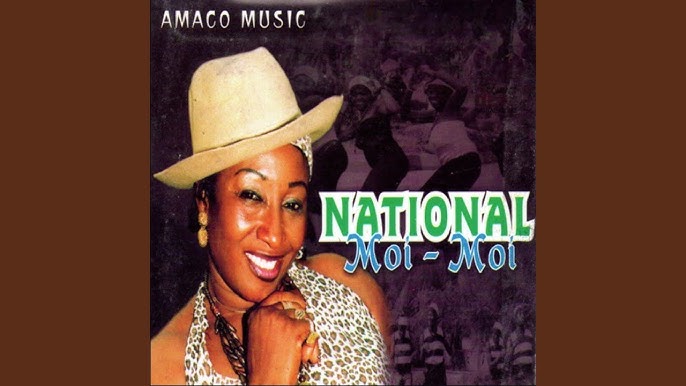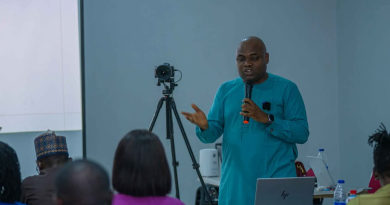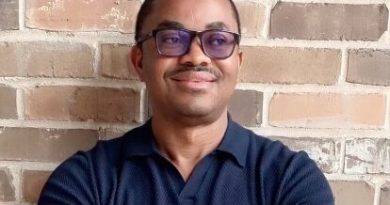How pastors kicked against my 2007 hit song, prompted me to focus on acting- Patience Ozokwor
Veteran actress Patience ‘Mama G’ Ozokwor has opened up about how religious leaders’ criticism of her 2007 hit song, ‘National Moi-Moi’, led her to shift away from music.
The classic song featuring actors like Tonto Dikeh and Charles Awurum in the video used humour and wit to address significant socio-political issues in Nigeria.
During an interview on the ‘Life Unscripted’ podcast, posted on YouTube on Thursday, the 66-year-old recalled how some pastors condemned the song’s message, expressing their disapproval.
Ozokwor, also known as G for General, said: “When I was growing up, I thought I was going to sing because I loved singing. I loved being in the choir, but it was a movie. Despite that, I did some Igbo songs, including ‘National Moi-Moi,’ which took me around America. I’m no longer singing that kind of song, but now I sing Christian songs.
“There’s nothing wrong with that song, but it was just criticising the government—that our leaders aren’t doing well and we, as citizens, aren’t helping ourselves. Some pastors weren’t happy with me when I sang the song, but when I told them I was only trying to make them understand that citizens don’t always need to wait for the government—sometimes they have to play their part—they understood.”
Mrs Ozokwor, recognised as one of the top 100 Nigerians honoured by the government in 2014 to commemorate the amalgamation of the Northern and Southern Protectorates, stated that the song highlighted police misconduct.
However, she noted that despite the criticism, the police never expressed anger toward her whenever they encountered her.
“The song also criticised the police, but I didn’t get into trouble with them because whenever I met them on the road, I explained the message of the ‘National Moi Moi’ to them.”

Gender disparity
The Best Supporting Actress award winner at the 10th Africa Movie Academy Awards in 2012 and 2013 also spoke about gender inequality.
She noted firsthand that she had witnessed such bias and emphasised that it often undermines the quality of movies that could have been outstanding for audiences.
Narrating her experience, she said, “Gender disparity is everywhere. In the industry, there are people at the same level as you as an actress, but because they are men, they get paid more. Until you, as an actress, stand your ground and refuse a lower amount, telling them to find someone else, they will keep underpaying you. And when they do get someone else, it kills the story.
“I don’t care how much they pay that person; just pay me the exact amount I charge. But you can’t ask me why I expect to be paid the same as an actor when we bring the same value to a production. Pete Edochie and others are also there in this job I’m currently doing. So, when we are all on set, you as a producer or director can’t bring a full pack of food for Pete Edochie and give me a small one”, she said.
Royalties
The Enugu-born actress further addressed the issue of royalties, emphasising that the industry is utilising all available avenues to ensure actors receive royalties, just like musicians.
Mrs Ozokwor, who debuted in the 1999 movie ‘Authority’, said, “We’re still battling with royalties for actors, which means actors should keep earning when their faces keep appearing on screen. Musicians are earning royalties, and actors need to as well. By God’s grace, I was one of the committee members who delved into this royalties problem, and we discovered why we’re not getting them.
“We found that the issue lies with the Actors Guild of Nigeria (AGN). We discovered that we can’t fight for royalties as a guild but can create something as a union. We wanted to join the Radio and Television Workers’ Union, and they are still working on that. Until we get involved with such groups, we can’t have royalties signed into law by the government.”
READ ALSO: How my Nollywood colleagues blackmailed, wrecked my career – Hanks
She went on to clarify the misconception that actors receive payment each time a movie they starred in is screened or watched.
“So, whatever actors are getting now is just what they were paid during the movie production. If your face keeps running for years, it’s the owner of the movie who is making money from it—unless you own the movie yourself,” said Mrs Ozokwor.
Support PREMIUM TIMES’ journalism of integrity and credibility
At Premium Times, we firmly believe in the importance of high-quality journalism. Recognizing that not everyone can afford costly news subscriptions, we are dedicated to delivering meticulously researched, fact-checked news that remains freely accessible to all.
Whether you turn to Premium Times for daily updates, in-depth investigations into pressing national issues, or entertaining trending stories, we value your readership.
It’s essential to acknowledge that news production incurs expenses, and we take pride in never placing our stories behind a prohibitive paywall.
Would you consider supporting us with a modest contribution on a monthly basis to help maintain our commitment to free, accessible news?
Make Contribution
TEXT AD: Call Willie – +2348098788999





